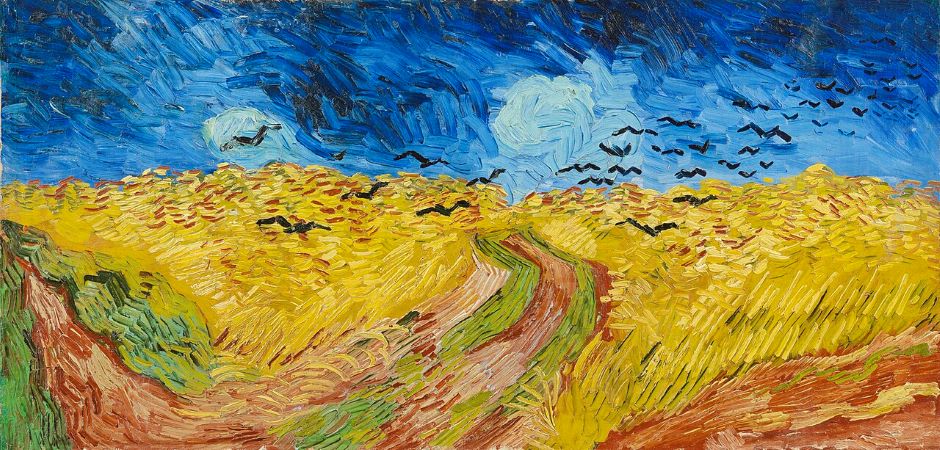The Parable of the Sower during Jesus’ famous preaching debut from the boat was just the start of his work that day. He later explained that one in detail privately to the disciples. Then he dealt out a handful of brief, pithy parables in rapid succession.
In the Gospel of Mark, there is one parable in the middle of that batch which appears only in that gospel. This is the Parable of the Seeds Secretly Growing. As almost every other figurative story in Mark is repeated both in Matthew and Luke, this is an unusual occurrence. Perhaps analysis using the Term Substitution Method (TSM) could provide some clues.
Here is the text:
He said, “God’s Kingdom is as if a man should cast seed on the earth, and should sleep and rise night and day, and the seed should spring up and grow, though he doesn’t know how. For the earth bears fruit by itself: first the blade, then the ear, then the full grain in the ear. But when the fruit is ripe, immediately he puts in the sickle, because the harvest has come.” [Mark 4: 26-29]
Below are the terms in this story and their meanings derived in The Word Unveiled. The first definitions given are the most authoritative being given in the Bible itself or by the Early Fathers, and the last are the least authoritative, being the opinions of modern preachers. Those definitions considered most apt for this particular parable are underlined.
kingdom of God — universal rule of God; grace by faith; perfection of believers
man — Adam; a sinner; reason, intellect; the Father; Apostles
seed — Word of God; conviction and doctrine; alms, works, faith and preaching
earth — flesh; humanity; base desires; human being; souls of sinners; lowliness of humanity; listeners; outer man; simple believers, etc.
sleep — bodily death; being put to death; forgetting God; fall into ignorance
night — present age, duration of the world; time of ignorance; iniquity, tribulations; adversity; pride of the wicked; fear of the ungodly; knowledge of mortality; punishments; sin and its effects, etc.
day — joy, prosperity; spiritual wisdom; an era; this age; age to come
fruit — alms; blessing the Lord; immortality; good works
blade (of wheat) — simple believers
ear (of wheat) — humans; baptized, mature believers
ripe (wheat) — perfect believers
full grain (of wheat) — Christ
sickle — means of mass deaths
harvest — end of this age; Judgment Day
Certain factors limit word choices. Some words are naturally paired: night and day, for example, should have definitions that match. For example, choosing “night” to be “present age” and “day” to mean “spiritual wisdom” would not make sense as those are not opposites. Likewise, the definitions of “blade”, “ear”, “ripe”, “fruit” and “full grain” should all have closely related meanings.
Most all of the nouns in this particular parable were defined but it is always up to the reader to derive the meanings of undefined words from the context of those already given. This is where it normally gets tricky. In this instance, however, we are in luck. The only undefined terms are verbs, “cast”, “rise”, and “spring up and grow”, which probably could stand just fine without any re-definition as “preach,” “remembering God” and “spread by talking”.
Using TSM, the parable now allegorically can read:
He said, “The perfection of believers is as if an Apostle should preach the Word of God to humanity, and should forget God and remember God in adversity and prosperity, and the Word of God should spread through talking, though he doesn’t know how. For humanity bears good works by itself: first the simple believers, then the mature believers, then Christ in the perfected believers. But when the good works are ripe, immediately he puts in the means of mass deaths, because the end of the age has come.”
This certainly seems to work well, but it is likely not the only symbolic reading of it that would. Like many allegorical readings of parables, this interpretation closely matches the broad consensus of two thousand years of tradition. Yet TSM gives new life to the sayings, stripping away the comforting qualifications that generation of preachers have layered over the raw meaning, as well as clarifying it with new, unexpected insights as well. The division of believers into three classes, for instance, is forgotten today, but very prominent among certain early thinkers.
The key question in any allegorical rendition is who is the main actor — in this case, “a man” — and what is the object being acted upon? Among the many definitions of “man” is “the Father”, like that in the Sower as “the Son of Man”, but that solution is difficult here because “sleep” either means “forgetting God” or “death”. Neither of which seems acceptable in this context.
But this reading matches that of the Parable of the Sower very well in other ways, for the object of “seed” as the “Word of God” is the same. However, it is even closer to the Parable of the Weeds, also concerned with things growing secretly by themselves. It almost reads like a continuation of this one. Tellingly, the Weeds story only appears in Matthew. Perhaps this parable seemed redundant to the one of the Weeds, which is an even starker warning about the End Times.
Or could this have been another version of what was originally the same story?
This is not the only such parable that could have such variant forms, which raises interesting questions about the way the sayings of Jesus were recalled among the scattered original communities. But such parallels are likely a good thing, for allegorical readings should not contradict other readings any more than they should counter generally accepted doctrine.
Yet, many of Jesus’ earliest teachings were all about the end of the world. Though his warnings increased as his message was spread, the apocalypse was not a later concern. Jesus was highly focused on the End Times right from the very start of his ministry.
Why would Jesus need to conceal warnings of Judgment Day in a parable? In the First Century, the land was firmly under the control of Rome, and Jewish politics were deeply entwined with their religion. Apocalyptic diatribes were not seen as calls to repentance as much as revolution, and there were a number of messianic preachers who were determined to bring it on.
Jesus was obviously quite aware of the political dangers involved but preached anyway. Despite obscuring his message in parables, enough apparently got through to guarantee his death. For if the people could interpret them, clever Romans doubtless could as well. Yet that might have been his intention all along.

